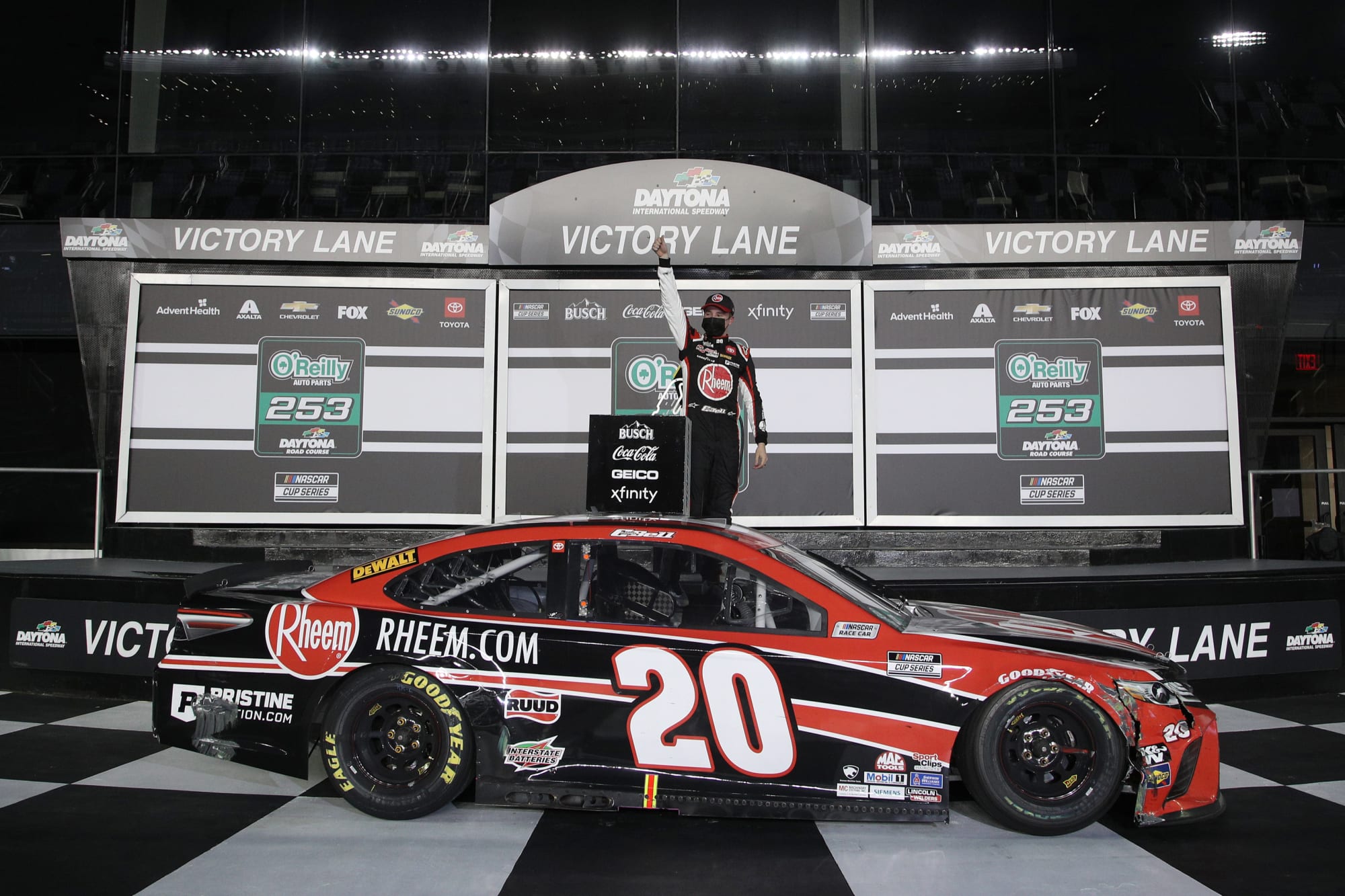
NASCAR race winners aren’t actually guaranteed to score the most points via a race win. Is this something that needs to change?
On the surface, this seems like a bizarre question. It seems bizarre that the question needs to be asked. Yet for the last five NASCAR seasons, it’s a question that’s been brought up on numerous occasions.
To open up the 2021 Cup Series season, Austin Dillon scored the most points in the Daytona 500 to sit atop the championship standings. Denny Hamlin and Joey Logano both led the series in points scored in the following race at the Daytona International Speedway road course.
Yet none of those three drivers have actually visited victory lane yet this year.
Michael McDowell won the Daytona 500 to secure his first victory in 358 career starts, and Christopher Bell won the road course race to secure his first victory in 38 career starts, making the 2021 season the first season since 1950 to start with back-to-back first-time winners.
McDowell tied for fifth place in points in the Daytona 500, and Bell ranked fourth in the road course race.
Of course, the Daytona 500 scoring also includes the Bluegreen Vacations Duels, in which points are awarded the same was as they are in stages (explained below). Not including the Duels, Hamlin actually scored the most points. But he still isn’t McDowell.
William Byron, who won the season’s third race at Homestead-Miami Speedway, became the first race winner to score the most points in his win this season, and Kyle Larson, who won the season’s fourth race at Las Vegas Motor Speedway, couldn’t join him. Brad Keselowski, who finished that race in second place, beat him in points. Larson finished in second.
Then at Phoenix Raceway, Logano scored the most points, but it was Joe Gibbs Racing’s Martin Truex Jr. who won the race.
Is this something that needs to change?
Ever since the introduction of stage racing, race winners aren’t guaranteed to score the most points. Points are awarded as follows:
- 40
- 35
- 34
- 33
- 32
- 31
- 30
- 29
- 28
- 27
- 26
- 25
- 24
- 23
- 22
- 21
- 20
- 19
- 18
- 17
- 16
- 15
- 14
- 13
- 12
- 11
- 10
- 9
- 8
- 7
- 6
- 5
- 4
- 3
- 2
- 1
- 1
- 1
- 1
- 1
Stage points, awarded at the end of the first two stages of each race (or first three stages in the case of the Coca-Cola 600 at Charlotte Motor Speedway), are awarded as follows:
- 10
- 9
- 8
- 7
- 6
- 5
- 4
- 3
- 2
- 1
So technically, the 16th place finisher could score more points than the race winner, and the race winner could potentially end up ranking as low as 11th in points scored in that race!
Fans often like to bring up points when it comes to the great debate about whether or not the playoffs belong in NASCAR. NASCAR isn’t a stick and ball sport, and many fans believe that the championship should be decided like the championships are decided in most if not all other forms of motorsport: season-long points tallies.
But given how points are currently awarded, that may even make less sense. In fact, it almost renders the whole playoff debate irrelevant.
NASCAR’s points format is almost like yardage in a football game. The team that gains the most yards will likely end up winning, but that isn’t always the case.
Even in Super Bowl LV, the Kansas City Chiefs, who were crushed by the Tampa Bay Buccaneers by a score of 31-9, outgained the Bucs 350-340 in yardage — kind of like Michael McDowell securing the Harley J. Earl Trophy but being outscored by Austin Dillon, Denny Hamlin, Kevin Harvick and Chase Elliott in doing so.
Should NASCAR ensure that no matter what happens in stages one and two (and three, in the case of the Coca-Cola 600), the race winner scores the most points? Given the playoff format, especially considering that everybody still plays by the same rules, does it even matter?
